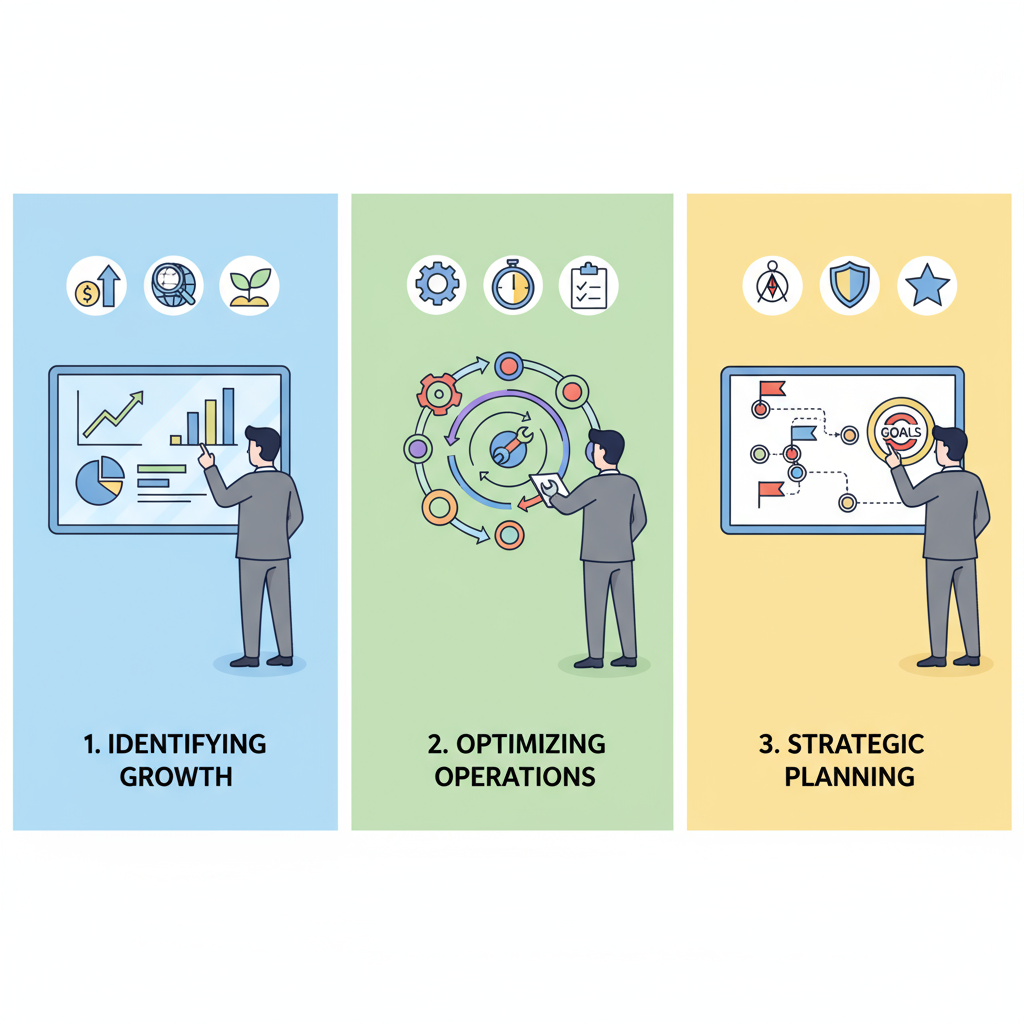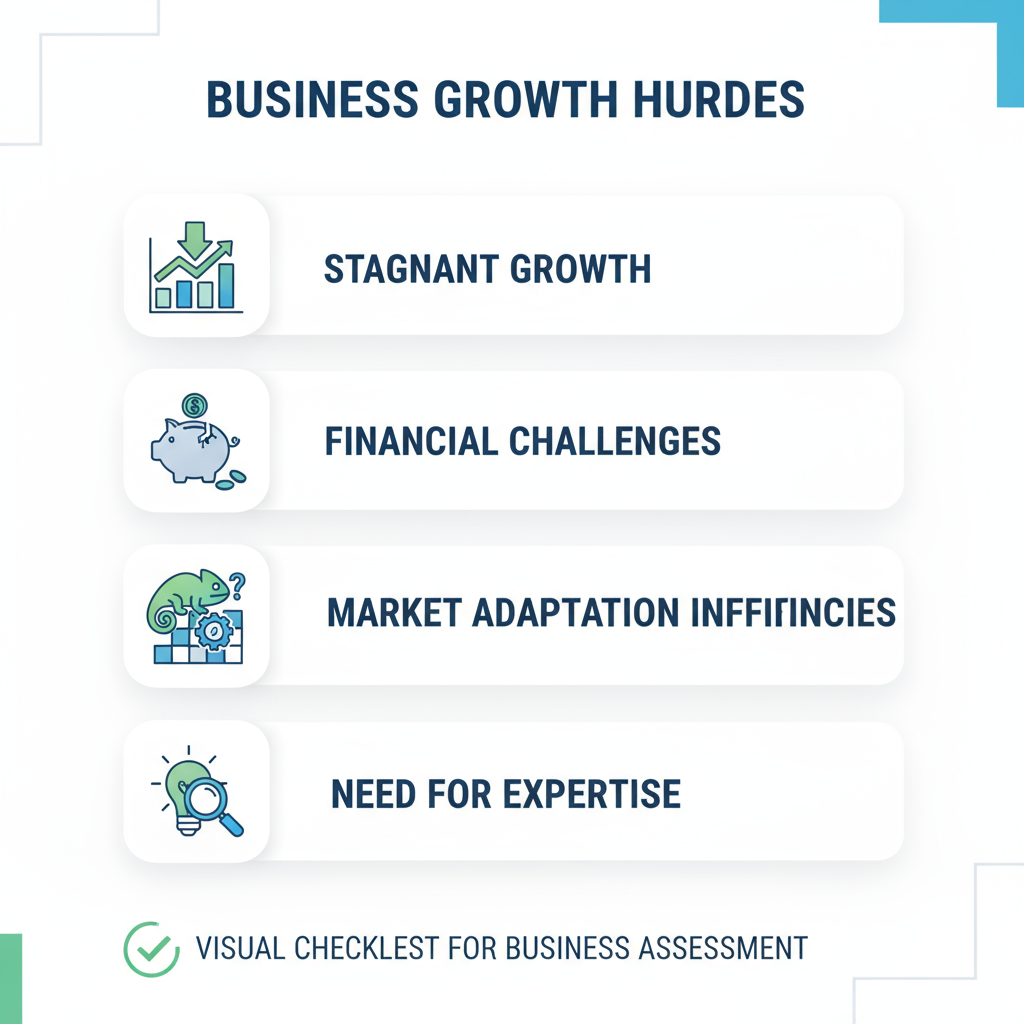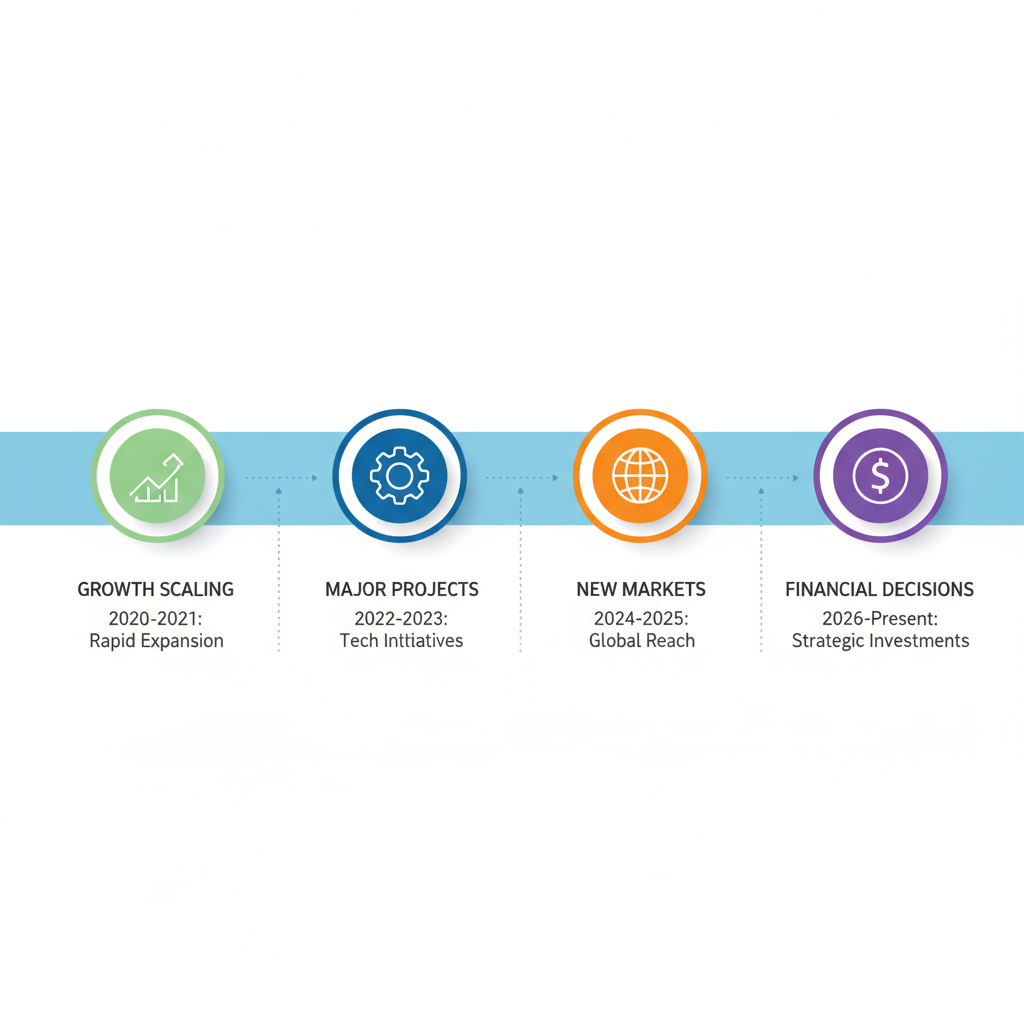Running a business can be both rewarding and challenging. As your company grows, you’ll face moments when internal expertise and experience may not be enough to navigate complex challenges, seize opportunities, or implement change effectively. This is where a business consultant comes in — a professional who can bring a fresh perspective, identify gaps, and create actionable strategies that help you achieve sustainable success.
But the real question is: When is the right time to hire a business consultant?
Let’s explore in detail the situations where hiring a consultant can be a game-changer, how they contribute to your business growth, and how you can work with them effectively.
Defining the Role of a Business Consultant

Before identifying the right time to hire, it’s essential to understand what a business consultant does.
A business consultant is an expert who analyses a company’s structure, strategies, and performance to identify areas for improvement. Their primary goal is to help businesses enhance efficiency, profitability, and long-term stability. They specialize in various domains — including strategy, operations, finance, marketing, human resources, and technology — depending on the specific needs of a business.
Consultants work closely with company leadership to:
- Diagnose problems and inefficiencies.
- Develop tailored strategies for improvement.
- Guide teams through transitions and change.
- Provide objective advice backed by data and experience.
An effective consultant brings a mix of analytical ability, creative problem-solving, and communication skills. They also have industry-specific insights that allow them to implement best practices quickly. Whether you’re a startup or a large corporation, a consultant can act as both an advisor and an execution partner — helping you align your operations with your business goals.
How a Business Consultant Can Help Grow Your Business

A business consultant isn’t just a problem-solver; they are a growth enabler. Here are several ways consultants drive growth and transformation:
a) Identifying Growth Opportunities
Sometimes, business leaders are too close to their operations to see untapped opportunities. Consultants conduct thorough market analysis to uncover:
- Emerging industry trends.
- Untapped customer segments.
- Product diversification opportunities.
- Expansion possibilities in new geographic markets.
For example, a retail brand struggling with stagnation might not realize its online potential until a consultant conducts an e-commerce market study. This fresh perspective allows the company to realign its strategy and capture a broader audience.
b) Optimising Operations
Every business faces inefficiencies — in production, logistics, customer service, or administration. Consultants assess your current processes, identify bottlenecks, and recommend streamlining solutions.
By re-engineering workflows or integrating automation tools, consultants can improve productivity, reduce costs, and enhance customer satisfaction. This optimization not only saves time but also frees up internal resources to focus on innovation and growth.
c) Strategic Planning and Implementation
Strategic planning is vital for long-term success. Consultants collaborate with management to design clear, actionable roadmaps that align with your company’s mission and vision.
They assist in:
- Setting realistic, measurable goals.
- Identifying KPIs for performance tracking.
- Creating risk mitigation plans.
- Monitoring execution progress.
The result is a structured and achievable growth strategy that keeps your team focused and accountable.
d) Enhancing Financial Management
Consultants specializing in finance help businesses make smarter financial decisions. They analyse budgets, cash flow, and investments to ensure financial stability.
They also recommend cost-saving opportunities, guide debt restructuring, and implement financial forecasting models. This ensures your business remains profitable even during unpredictable economic cycles.
e) Facilitating Innovation and Change
Innovation often requires stepping outside comfort zones — something many companies struggle with. A consultant introduces new technologies, tools, and methodologies that drive transformation.
For example, during a digital transformation project, a consultant might help transition traditional operations into cloud-based systems, automate repetitive tasks, and train employees for the new environment.
f) Building a Competitive Advantage
A business consultant helps companies stand out by analyzing competitors and customer expectations. They guide you in developing unique value propositions, refining your brand positioning, and implementing differentiation strategies that increase your market share.
In short, a business consultant doesn’t just tell you what to do; they work alongside you to make it happen — systematically, strategically, and successfully.
Signs Your Business Might Need a Consultant

Recognizing when to hire a business consultant can save your company time, money, and energy. Here are key signs that indicate it’s time to bring in professional guidance:
a) Stagnant Growth or Declining Sales
If your company’s growth has plateaued or revenue has started declining, you may need an external perspective. Consultants can identify root causes — whether it’s weak marketing strategies, poor pricing models, or market saturation — and design effective recovery plans.
b) Operational Inefficiencies
When daily processes take longer than expected or errors occur frequently, it’s a red flag. Consultants analyse operations to identify inefficiencies, eliminate waste, and implement solutions like automation or restructuring to boost overall efficiency.
c) Financial Management Challenges
If your business struggles with budgeting, forecasting, or managing cash flow, a financial consultant can help. They bring structure, improve reporting systems, and ensure better financial control to keep your business sustainable.
d) Difficulty Adapting to Market Changes
In today’s dynamic business environment, technological and consumer shifts happen rapidly. Consultants guide organizations through transitions, ensuring they stay relevant and competitive.
e) Need for Specialized Expertise
Some business challenges require specialized skills — for example, digital transformation, HR restructuring, or expansion strategy. Hiring a consultant gives you access to this targeted expertise without long-term hiring costs.
Strategic Timing for Hiring a Business Consultant

Timing can make a significant difference in how much value you get from consulting services. Here are strategic moments when hiring a consultant is most beneficial:
a) During Critical Growth Phases
When scaling your business, consultants help you plan for sustainable expansion. They build scalable processes, implement efficient systems, and prepare your team for operational growth without losing quality.
b) For Major Projects or Organisational Changes
Whether it’s launching a new product, restructuring your company, or implementing new software, consultants can help manage change effectively. They create timelines, manage resources, and mitigate risks associated with big projects.
c) When Entering New Markets or Launching New Products
Consultants conduct thorough market research, assess demand, analyse competition, and develop strategies for successful entry. Their insights minimize risks and increase the likelihood of success.
d) During Significant Financial Decisions
For mergers, acquisitions, or large-scale investments, consultants provide due diligence, risk assessments, and valuation analysis to ensure informed decision-making.
By involving consultants at these critical moments, you gain access to structured, data-driven strategies that reduce uncertainty and improve outcomes.
Evaluating Your Business Needs Before Hiring
Before bringing in a consultant, take time to evaluate your internal needs:
- Identify what challenges your company is facing.
- Define what outcomes you expect from the consultancy.
- Ensure that hiring a consultant aligns with your overall strategy.
It’s also essential to calculate the return on investment (ROI). While consultants charge fees, their ability to improve efficiency, prevent losses, and drive growth often results in higher profitability over time.
In the UK, the average salary for a business consultant is around £44,053 per year, but their impact can multiply that value through the long-term benefits they deliver.
Working Effectively with a Business Consultant
Once you’ve decided to hire a consultant, success depends on how you collaborate. Here’s how to maximize the value of the partnership:
a) Set Clear Objectives
Start by defining your business goals. Are you looking to increase profitability, streamline processes, or enter a new market? Clear objectives allow the consultant to focus efforts effectively.
b) Establish Strong Communication Channels
Regular meetings and progress updates are essential. Keep both sides informed about expectations, challenges, and results. Transparency builds trust and ensures alignment.
c) Define Success Metrics
Measure results through performance indicators such as revenue growth, cost reduction, or customer satisfaction. Having quantifiable metrics helps you assess the consultant’s impact.
d) Encourage Collaboration
Treat the consultant as part of your team. Encourage your employees to cooperate openly — this enhances implementation and ensures lasting improvements.
e) Review and Evaluate Outcomes
Once the project concludes, evaluate the outcomes compared to the initial objectives. Assess what worked, what didn’t, and how you can continue improving based on the consultant’s recommendations.
Working collaboratively not only ensures better results but also builds your internal team’s capacity to sustain improvements after the consultant’s engagement ends.
Conclusion
Hiring a business consultant can be one of the most strategic decisions a company makes. Consultants bring valuable external perspectives, deep industry knowledge, and problem-solving expertise that can help you overcome challenges, achieve growth, and enhance competitiveness.
The right time to hire a consultant is when your business hits a wall — whether it’s slow growth, operational inefficiency, market uncertainty, or the need for expert guidance. Engaging a consultant during these key moments can transform your business performance, streamline operations, and drive innovation.
Ultimately, the success of hiring a consultant depends on clarity, collaboration, and commitment. When used wisely, consultancy can become a powerful investment that sets your business on a path toward long-term success.
FAQs
When is the right time to hire a business consultant?
The right time to hire a business consultant is when your company faces stagnation, inefficiencies, or strategic challenges. It’s especially valuable during growth phases, organizational restructuring, or when expert insight is needed for specific projects or market expansions.
What are the main benefits of hiring a business consultant?
Hiring a business consultant provides:
Fresh, unbiased perspectives.
Expertise in areas your team lacks.
Improved operational efficiency.
Better financial and strategic planning.
Enhanced decision-making for long-term growth.
How can a business consultant help with decision-making?
Consultants use data analysis, market insights, and experience to present actionable strategies. They help business owners make informed, risk-aware decisions and avoid costly mistakes.
What industries can benefit from hiring a consultant?
Every industry — from manufacturing and healthcare to retail and technology — can benefit from consulting. The expertise is tailored to the business’s unique needs and challenges.
How do I choose the right business consultant?
Look for consultants with proven experience in your industry, strong communication skills, and a track record of measurable results. Always ask for references and case studies before finalizing your choice.
Is hiring a consultant expensive?
While consulting comes with costs, it’s an investment that often delivers higher returns through increased efficiency, growth, and profitability. The key is choosing the right consultant and setting clear expectations.
I’m Debabrata Behera, a passionate blogger sharing insights, tips, and stories across diverse topics. Through my writing, I aim to inspire, inform, and connect with readers worldwide.

